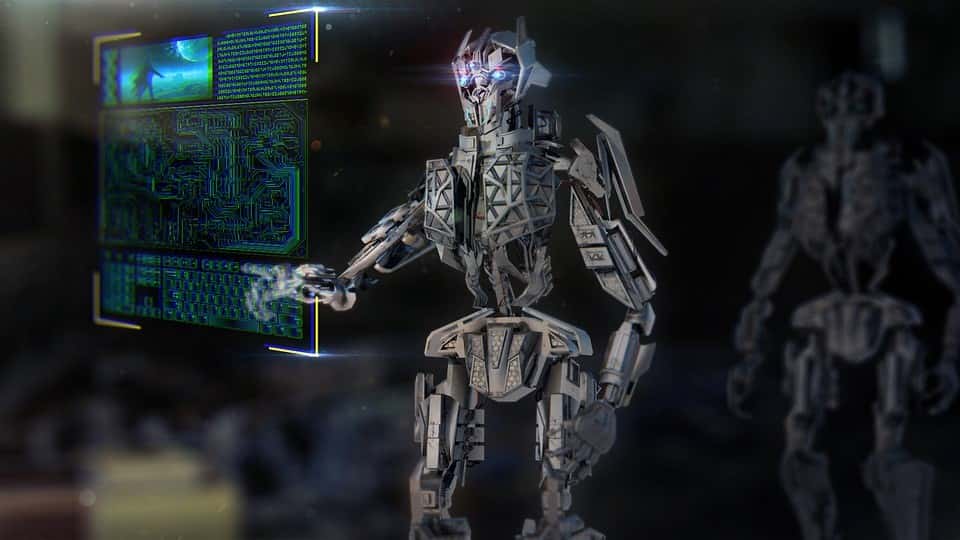While machine learning and artificial intelligence (AI) are not exactly the same, they are close enough for government work.
According to Forbes, the difference is “Machine Learning is a current application of AI based around the idea that we should really just be able to give machines access to data and let them learn for themselves.” In other words, machine learning is just part of AI, which is the concept that machines can carry out tasks in a “smart” way.
Skynet, anyone?
Scaremongering aside, a world where machines run everything, and humans can spend all their time aiming for self-actualization, is not here yet. However, machines are getting smarter every day, and AI is a multibillion industry in and of itself. There are machine-learning applications for everything, from home appliances to autonomous educational software.
The question is what are the implications of these developments in machine learning? Here are 5 experts as they weigh in on machine learning in TED Talks.
Solving the unsolvable

Jeremy Howard, technologist, on new developments in deep learning
In his talk, Jeremy Howard traced the development of machine learning, beginning with Arthur Samuel and his checker-learning computer program in 1956 to a machine that learned Chinese well enough to serve as translator. He spoke of deep learning, a single algorithm that mimics the way the human brain works, but with a lot less mess and no limitations on what it can do, in theory. Deep learning is responsible for, among other things, driverless cars and social media updates.
All of these developments, Howard says, resulted from trying to calculate the incalculable, and solving the unsolvable. Machine learning has made it possible for humans to achieve what they could not do on their own, and continues to spur further advances in the field. Currently, machines can do many things faster and better than their human counterparts can, and with fewer errors. Of course, machines are not yet capable of doing the work of essays services or standup comedians, but they very well might in the future.
However, Howard points out that it isn’t about machines replacing humans, but about machines enabling humans to get more done, and move on to other things. The opportunities in many fields are exciting, especially medicine and education. Machine learning can help solve problems in medical and educational services by filling in the gaps in remote areas caused by the lack of qualified humans.
Enhancing lives with AI
Tom Gruber, Siri co-creator, on humanistic AI
Tom Gruber proposes a humanistic AI, one that can positively affect human memory, work, and social lives. He describes a machine learning algorithm designed to make humans smarter, stronger, faster, and more creative. In his vision, AI augments human capabilities instead of competing with it. He states, “We are in the middle of a renaissance in AI. Every time a machine gets smarter, we get smarter.”
AI-powered dystopia
Zeynep Tufekci, techno-sociologist, on the abuse of AI
Techno-sociologist Zeynep Tufekci, voices out what many people already wonder. Can the humans that control AI use that power to gain control of information? She describes how machine learning algorithms used by Internet-based companies to compel users to click ads are the same ones used to give (or restrict) your access to social and political information. She states that in developing technology designed to persuade people to click on ads, the creators are inadvertently creating a world of constant surveillance and manipulation.
As most people know, information is power, and AI can and does control the flow of digital information, and, by extension, our reactions and behavior, if it is given enough data. This is why companies like Facebook and Google mine as much information as they can about users, to make the algorithm work better. In a very real sense, people that abuse the capabilities of AI can affect the emotions and behaviors of a large number of people anyway they want, and users will not even be aware of it.
Tufekci states that things have got to change and that people need to challenge how the system currently works. They should demand more transparency on how the algorithms work, and how people behind AI use its capabilities to regain control over their own data and actions.
Controlling the development
Grady Booch, scientist and philosopher, on making a more human AI
Grady Booch states that a super-intelligent AI is nothing to fear as long as its creators teach it human values and morals. Since these are learning machines, it is just a step in another direction to teach them to value what humans do. Rather than focusing on making them faster and more powerful, creators should put more effort into making them more human. This would eliminate popular fears of machine overlords, and increase the likelihood that AI can help humans have better lives.
Earning without jobs

Martin Ford, futurist and author, on a universal basic income
Much like Star Trek, where no one earns money but everyone has anything they need, author and futurist Martin Ford proposes a world where people no longer have to work to get an income, thanks to advance AI.
He points out that for over 200 years, experts have been warning about machines taking over people’s jobs leading to economic and social upheaval, but it did not happen. AI, however, may actually put at least half of the world’s population on the unemployment line.
To manage what could become a major problem of economic stagnation and social collapse, Ford proposes the separation of traditional work and income. Everyone has access to a basic or universal income based on a person’s accomplishments and contributions to society. Other things will also have to change, and it will be a matter of making things up as needed. The point is, AI will change the society and way of life, and it is best to be ready for these changes.